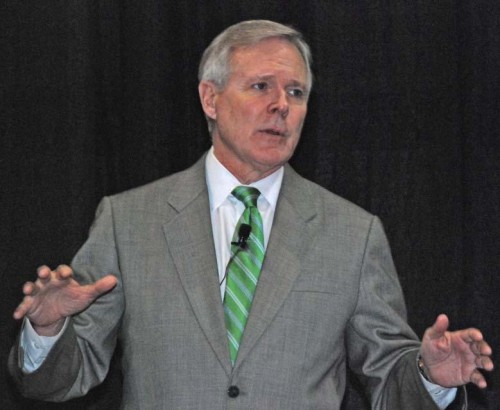
Protection vital for future, locals tell Mabus
August 17, 2010Back-to-school road safety tips for children and parents
August 19, 2010As another tropical depression loomed outside of the U.S. District Court in New Orleans last Wednesday, District Judge Martin Feldman readied himself for another installment of the Hornbeck v. Salazar case.
“First, I would like to thank you for your diligence in which you have pursued this,” Feldman told both the defendants and the plaintiffs, and noted he appreciated both parties for professionalism.
The two issues Feldman said he was particularly interested in regarding the arguments presented in court were, the issue of mootness and the issue of recurrence.
Guillermo Montero, a justice department attorney representing the Secretary of the Interior began his argument by explaining the crux of the plaintiff’s argument was insufficient data, facts and analysis on the May 28 memorandum, that was originally shot down by Feldman on June 22.
Montero stated the new directive, submitted by the Interior on July 12, addressed the previous issues that violated the Administrative Procedure Act (APA) that deemed the May 28 memorandum “arbitrary and capricious.”
Feldman was asked to dismiss the lawsuit filed by Hornbeck, because based on new regulations in the July 12 memorandum; the lawsuit is no longer valid.
Montero continued that the July 12 memorandum has changed substantially from the May 28 document, but the end result, being a moratorium that may or may not be imposed until Nov. 30, did not undergo significant change. He also noted that the July 12 directive cannot be prejudged, and will be judged in the Ensco hearing on Sept. 22.
“No one on the federal side is trying to shield the July directive from review,” Montero said in his closing statement.
The plaintiffs, represented by attorney Carl Rosenblum had a different opinion.
Rosenblum asserted the information in the July 12 directive was simply an afterthought placed due to a judgment already made, and is the same “animal” as the May 28 memorandum.
“You’ve only hunted the animal that’s extinct,” Feldman said to Rosenblum’s statement.
“Within hours after the injunction, the DOI issued a press release,” Rosenblum said. The press release, issued on June 22, contained a statement from Salazar explaining the moratorium was right, and that he would move forward with another moratorium.
“He could have said he was going to acquire new data, but that’s not what he said,” Rosenblum said, and reiterated the decision to impose a second moratorium was made hours after the preliminary injunction, which would not have given Salazar enough time to gather the appropriate information missing in the May 28 memorandum.
Rosenblum called Salazar’s decision a “sham” to the court’s right to a judicial review, and said to call the July 12 directive a “new decision” or a “genuine action” was outrageous.
“It was a preordained decision to chill drilling in the Gulf,” he said.
Government officials that represent local parishes and the state of Louisiana agree, and expressed concerns about the moratorium to President Barack Obama last week.
“When we met, we talked about the spill and then we moved to the moratorium, and Bobby Jindal asked [President Obama] to please speed up the lifting of that moratorium, and the president said we have to wait until the study is done,” Terrebonne President Michel Claudet said. “If the moratorium lasts too long these rigs will move out of the Gulf and they may not come back.”
And according to Rosenblum, three rigs have already left the Gulf of Mexico.
Rosenblum called Salazar’s decision a “direct effort to circumvent gate keeping” and said it made a “mockery of the judicial process.”
Montero refuted Rosenblum’s statements by explaining the Secretary did in fact give genuine consideration to the new directive, and characterized it as an “exercise in good faith.”
After hearing both arguments, Feldman gave a briefing deadline set for 5 p.m. today. He also requested each side present a comparison of “old” information and “new” information in both May 28 and July 12 memorandums, in order to qualify the data presented in the July 12 memorandum.
Presently, the suspensions of drilling operations under the July 12 memorandum stand, regardless of the outcome of this case, according to Montero.








